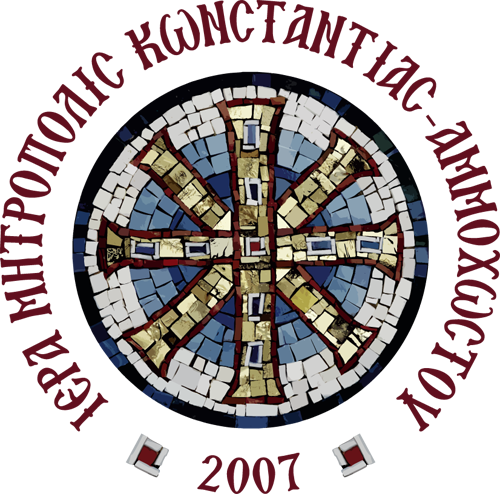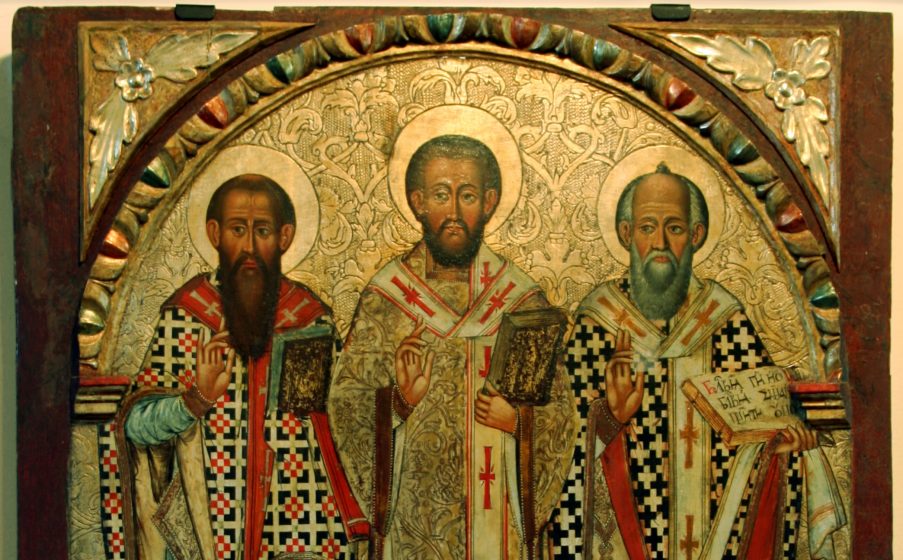The Three Hierarchs celebrated on 30th January
During the reign of Emperor Alexios I Komnenos (1081 – 1118) there arose in Constantinople a great dispute over these three hierarchs. Some regarded Basil the Great (c. 330-379) higher than the other three because he was an exalted orator, he surpassed all in his time in both word and deed, he was angelic, steadfast in temperament, and alien to all that is worldly. Others regarded John Chrysostom (c. 347-407) for being most loving and merciful, understanding the weaknesses of human nature, and as an eloquent orator who guided all to repentance through his discourses. Others, finally, stood behind Gregory the Theologian (329-389) maintaining that in the cogency of his speech, his skillful interpretation of the Scriptures and in the elegance of the construction of his discourses he surpassed all the renowned proponents of Hellenic wisdom, both those who lived in times past and those who were his contemporaries. Thus, while others would exalt the glory of one Church Father, others would demean their significance. Some went so far as to refer to themselves as Basilians, Johnites and Gregorians.
After a short time these three Saints appeared in a vision to Metropolitan John Mauropous of Euchaita (died c. 1075-1081), who recorded the details of this controversy (PG 120). He was told in this vision by the three hierarchs themselves that all three of them were equal before God and commanded that those indulging in the disputes to cease their disagreements and unite by commemorating the three together on a single day and ordered that Bishop John write the hymns for the feast. Since all three were commemorated in January, he decided to proclaim the Feast of the Three Hierarchs on January 30th, and this ended the dispute. (See The Lives of the Three Great Hierarchs: Basil the great, Gregory the Theologian, and John Chrysostom. Dormition Skete Publications, 1985, pp. 188-191.)

